July 2022 – COA Patient Advocacy Network News Bulletin
Advocacy Chats – Insightful Conversations on Policy Issues & Cancer Research
National Organization for Rare Disorders – A cancer diagnosis can be devastating, and patients diagnosed with rare cancers face added uncertainty. Coping with a rare disease can be scary, but there are organizations that can help. On July 13, Rose Gerber, director of patient advocacy & education at COA, and Jill Polander, RN, MSN, vice president of patient services at the National Organization for Rare Disorders (NORD), discussed NORD’s research into lesser known and new diseases, including cancer, and work to support patients navigating rare diagnoses. Stream it on @OncologyCOA’s YouTube channel today.
ICYMI: The History of Cancer Survivorship – Cancer survivorship is a vital part of cancer care and planning. Last month, COA’s Rose Gerber spoke with Judy Pearson, founder of A 2nd Act to explore the history of the movement, the state of survivorship, and how A 2nd Act helps cancer survivors launch their second acts. Stream it on @OncologyCOA’s YouTube channel today.
Save the Date – 2022 Virtual Advocacy Summit
Join COA on September 28 for our 2022 virtual Community Oncology Advocacy Summit. The annual summit will feature a roundup of the latest updates and education on key issues impacting cancer care in America and is an exciting opportunity to connect with patients and providers who share your advocacy passions. Revisit last year’s summit to learn more.
Understanding Advocacy in a Community Oncology Setting – Engaging Policymakers: In-Person Meetings
Establishing relationships with lawmakers is a critical element of advocacy, and meeting with elected officials to discuss cancer prevention and share personal stories is a great way to get started.
Each office has a preferred method of communication. Call the office of your lawmaker first and ask to speak with the scheduler. In some cases, you may meet with a legislative aide – an issue expert that has great influence with the elected official. If you are meeting with a lawmaker, try to schedule for when they are home (in-district). Make sure to provide the full names of all participants and be clear about what you intend to discuss.
Before the meeting, choose one or two issues to focus on and practice clear and easy talking points. Be on time and expect your meeting to be brief. Explain your issue factually, take notes, thank the elected official for their time, and ask to take a picture to share on social media.
- Learn more about community oncology, the challenges that practices face, and how you can get involved by visiting CPAN’s Education & Resources library.
Cancer News You Can Use
Dems Try Again on Drug Prices
Axios 07/07
Democrats are trying again to enact government price negotiations for prescription drugs, including cancer medications, with a revised plan that would be wrapped into a broader reconciliation bill. According to a summary of drug pricing provisions obtained by Axios, negotiations would begin next year, and the new negotiated drug prices would take effect in 2026.
The New Enhancing Oncology Model: What You Need To Know
Advisory Board 06/29
The Centers for Medicare & Medicaid Services recently announced its new oncology payment model, known as the Enhancing Oncology Model, which will launch a five-year test period on July 1, 2023. The new program builds off the Oncology Care Model, which ended in June.
FTC Launches Investigation Into Major Pharmacy Benefit Managers’ Business Practices
Fierce Healthcare 06/07
Amid growing pressure from Congress to take a closer look at their business practices, the Federal Trade Commission announced plans to probe six of the largest pharmacy benefit managers in the U.S. High-profile drug-price hikes have cast a spotlight on PBMs’ role not only in what patients pay for drugs, including cancer medications, but what pharma companies charge for them.
How Structural Medical Racism Perpetuates Asian American Cancer Disparities
NBC News 06/07
Structural racism perpetuates cancer disparities among Asian Americans, who are the first racial group to experience cancer as the leading cause of death. For example, few Asian Americans are included in clinical trials, and aggregated data – which treat Asian Americans as a monolith and can obscure differences in health outcomes between different Asian subgroups – can negatively impact patient care and outcomes.
Community Oncology 101 – Spotlight on Cancer Care: Going the Extra Mile for Patients
Seemingly insignificant actions can go a LONG way. Learn how Augusta Oncology takes care of the whole patient, connecting them with financial and transportation assistance and making sure individuals know they are never alone.
Resources for Chapters
COA’s Sit in My Chair program does more than raise awareness of the issues facing community oncology – it turns lawmakers into advocates for care. The powerful experience of being ‘treated’ for cancer during a Sit in My Chair event allows lawmakers to see firsthand the value of community oncology.
Learn more about the program and how to begin planning your event.
Recent News & Updates
As the deadline approaches for people to enroll in Marketplace coverage that starts January 1, 2026, the American Cancer Society Cancer Action Network (ACS CAN) is urging the Senate and the House to come together in a bipartisan way to pass legislation extending the enhanced premium tax credits and work to address the health care affordability crisis.
You’ve probably heard this story before: a local business, owned for decades by a family that has been deeply involved with the community, closes its doors due to being muscled out by a national big box store.
In 2026, the Trump administration will require U.S. cancer registries that receive federal funding to classify patients’ sex as male, female — or not stated/unknown.
Lore Gruenbaum sat down for an on-site interview with CURE at ASH to discuss the major themes shaping blood cancer care today, as well as expand on how the latest research is influencing advocacy priorities for Blood Cancer United.
